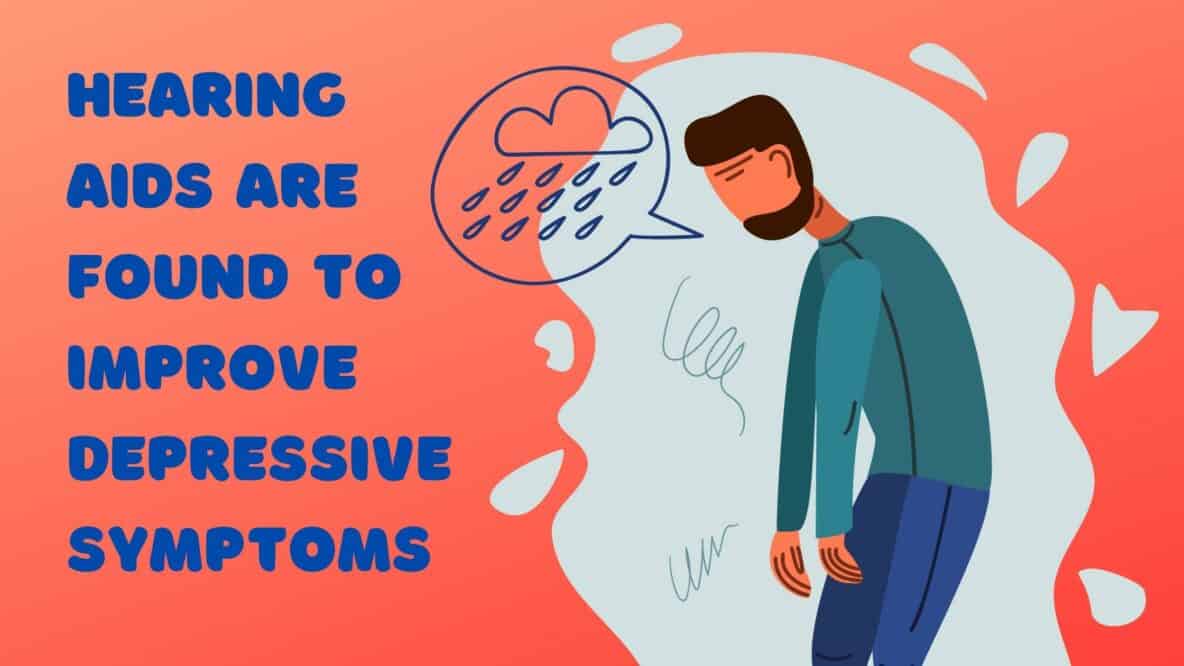Hearing loss is a condition that affects people’s emotional well-being as well as their daily lives. It’s especially crucial to identify, given the growing number of people who suffer from hearing loss.
Hearing loss affects about 15% of adults in the United States over the age of 18. That indicates that more than 37 million people in the United States are dealing with the day-to-day challenges of living with hearing loss and their mental health and emotional well-being.
While hearing loss is significantly associated with depression, new research suggests that correcting hearing loss with hearing aids can help alleviate depression symptoms.
Hearing loss and depression are linked
When we cannot communicate adequately with others, we are more likely to adopt isolated behavior patterns into our lives.
Avoiding something that gives us discomfort or perplexity is an inherent human response. Rather than dealing with the situation, the reaction is to avoid it.
Many persons with hearing loss are ignorant of their condition or feel embarrassed to be going through the natural aging process, so they don’t seek a definitive diagnosis. As a result, persons who have difficulty hearing and communicating become increasingly isolated, far removed from the basic need for human connection. They may even internalize their incapacity to communicate effectively and blame themselves for their lack of competence.
This recurrent trend explains why persons with untreated hearing loss frequently feel unworthy. When hearing loss is present, the likelihood of depression in adults more than doubles.
Depression and hearing loss treatment
This is why once a definitive diagnosis of hearing loss has been made, it is critical to seek help and assistance. People can take a realistic picture of their hearing health and its impact on their emotional states now that the problem has been detected.
Support groups are a terrific way to share stories and coping mechanisms that can help people who have trouble communicating due to hearing loss get back into a lifestyle that allows them to connect and form relationships. The Hearing Loss Association of America has information to assist you in finding a local support group.
A relationship between hearing treatment and a reduction in depression
There is a significant link between correcting hearing loss and reducing depressive symptoms, especially in older persons. According to a study conducted by Johns Hopkins University, the University of Oklahoma College of Medicine, and Drexel University, depressive symptoms decreased by 28 to 31 percent after six months of using hearing aids or cochlear implants to correct hearing loss.
When hearing devices are used, even the isolating tendencies commonly linked with hearing loss are reduced. According to a study performed by the National Council on Aging in collaboration with Market Strategies, Inc, respondents with more severe hearing loss who used hearing aids were considerably more likely to participate in social li did not treat their hearing loss.
Hearing technology has evolved
Thankfully, hearing loss treatment with current equipment looks a lot different than it did for our grandparents and parents. Unlike past versions, which were clumsy and inefficient at times, today’s models are sleek, clever, and understated.
Hearing aid technology has progressed to the point where it now integrates seamlessly with everyday gadgets, altering hearing aid volume as simple as checking your text messages. The best way to find out which of the various options now available matches your individual lifestyle is to speak with us.
Connection is a basic human need
Despite the rise of social media platforms, experts agree that emotional well-being and mental health are still driven by face-to-face human connection. Our ability to connect with others is compromised when hearing loss complicates and confuses conversations and interactions with the world.
The most effective strategy to combat this is to correctly treat hearing loss. Hearing treatment can restore these lines of communication, helping you continue to enjoy the company of your friends, family and others. To ensure that hearing loss does not throw you off the path of happiness, schedule a hearing test or a consultation with us. Contact us today!

